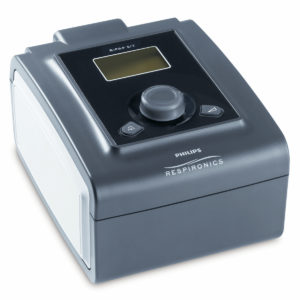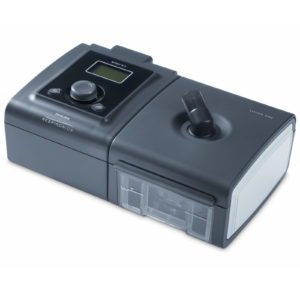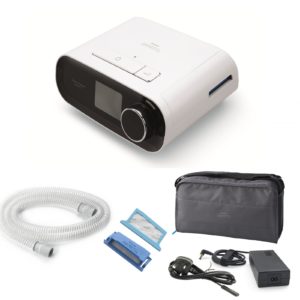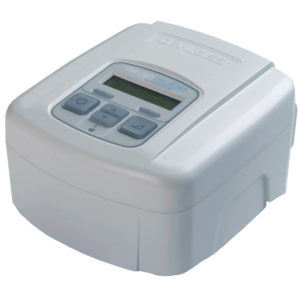BiPAP Machines
We do not currently provide BiPAP machines, but this page is for informational purposes only. However, if you’re looking here because you’re unsure if you need a BiPAP machine, we recommend discussing this with a sleep specialist to ensure you use the appropriate machine. Much like CPAP machines, BiPAP machines are used to treat Obstructive Sleep Apnoea (OSA). Although, they also treat a variety of other respiratory conditions.
In most cases, patients with OSA are required to use a CPAP Machine, which provides the same air pressure when you breathe in and out. There are two types, fixed-pressure, which provides air pressure at one level of pressure and automatic machines, which varies in pressure to adjust to your breathing throughout the night. Auto devices are the most commonly used; we have several options for these, which you can find here.
What does a BiPAP machine do?
A BiPAP (Bilevel Positive Airway Pressure) machine is a non-invasive medical device that assists individuals with breathing difficulties, particularly those with Sleep Apnoea, Chronic Obstructive Pulmonary Disease (COPD), Congestive Heart Failure, or other respiratory conditions. It delivers two distinct levels of airway pressure during the breathing cycle, which helps improve breathing and oxygenation. The first level is for inhalation; it is called IPAP (Inspiratory Positive Airway Pressure). The second lower pressure for exhalation is called EPAP (Expiratory Positive Airway Pressure).
BiPAPs also feature synchronisation and breathing detection. BiPAP machines are designed with sophisticated algorithms and sensors to detect patients’ breathing patterns in real-time. These sensors monitor the patient’s inhalation and exhalation, allowing the machine to adjust the pressure levels automatically. Many BiPAP machines come with a ramp feature, which allows the pressure to start at a lower level and gradually increase over a set period. This helps patients get accustomed to the therapy by providing a gentler pressure initiation.
Who would Benefit from BiPAP therapy?
- BiPAP machines are often prescribed to Sleep Apnoea patients with high-pressure settings or low oxygen levels.
- BiPAPs are often used after CPAP has failed to treat individual patients adequately.
- BiPAPs can be helpful for patients with cardiopulmonary disorders such as congestive heart failure.
- People with lung disorders or certain neuromuscular disorders.
- Patients with Hypercapnic Respiratory Failure, which happens when carbon dioxide builds up in your blood, and you aren’t effectively getting rid of it when you exhale.





